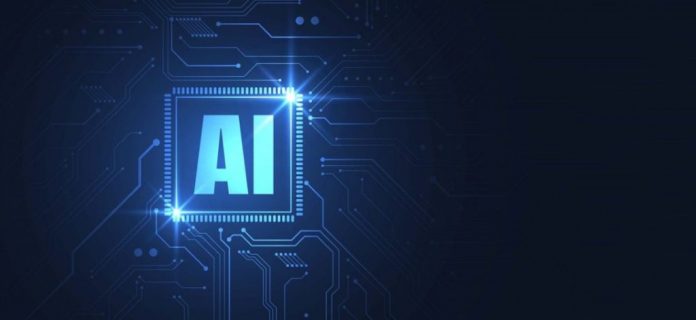This article is written by Shivam Sharma studying at SLS Pune and pursuing a Diploma in Advanced Contract Drafting, Negotiation, and Dispute Resolution.
This article has been published by Sneha Mahawar.
Table of Contents
Introduction
With the advent of the new age of technology, the data from various silos has grown in its complexities and their management has become a cumbersome and time-consuming task. For the proper management of the data, it is imperative that teams of Data Scientists aggregate data from multiple sources and reconcile any inconsistency in the said data. From such ‘purified versions’ of the data, we attain the clean repository of ‘information’. This is easier said than done, especially in the ever-increasing requirement of compliances and regulatory overlook.
In contemporary times the most efficient and effective method of streamlining such data management is via a smart contract. But the potential of smart contracts in managing complex data can be boosted exponentially when it is combined with Artificial Intelligence (AI) and Machine Learning (ML). This article attempts to explain what a smart contract is and how its inculcation with AI and Machine Learning could be the next evolutionary step towards a new industrial age.
What is a Blockchain
In simple words, a blockchain is a system that records information and makes it either difficult or impossible to change, hack or cheat such information. It is a digital ledger that keeps a record of transactions. These records of transactions are duplicated and distributed with a number of computers in a network. A block in the blockchain will contain a number of transactions. Every time a new transaction is added, the same is recorded to every ledger on the numerous computers. This distributed data (i.e., a record of information about the transactions) is managed via a Distributed Ledger Technology (DLT).
Why is Blockchain so important
The aspect of Blockchain that makes it so secure is that if one block in the chain was tempered with, it will not tally out with the rest of the entries on the network of computers. The only way to get away with tampering with the date is to alter every block in the chain across all the computers. As the Blockchain keeps growing, the security of the same is significantly enhanced. With the most common types of databases (like SQL), someone has the power to change the entries (i.e., there is a person in charge). But in the case of a Blockchain, there is no one in charge. It is being run by the computers in the network supporting the Blockchain. Thus, no single person is in charge as it is being run by the people who use it.
What are smart contracts
A smart contract is a program on the blockchain which will only run when some predetermined conditions are met. Once these predetermined conditions are met, the contract will be executed automatically. Due to such automation, all the participants can be certain of the outcome and there is an elimination of any intermediary’s participation.
How do smart contracts work
The basic tenet behind the operating of a smart contract is the execution of an ‘if/when…then’ statement. These statements are written in the Blockchains themselves. Thus, we know that it is almost impossible to alter or hack them. Once the predetermined conditions are met and verified, all the computers in the network execute the contract. Executing the contracts means taking an action such as:
- Make a payment towards the electricity bill;
- Registration of a vehicle;
- Send a notice to the opposite party in the contract;
- Issue a plane ticket once the payment for the same has been received.
Once the action is completed, the same is recorded in the Blockchain. Again, this new information cannot be altered or hacked. In addition, even though the information is stored on a number of computers in the network, only the parties granted permission can view the results.
Benefits of smart contracts
The list of advantages of using smart contracts is never-ending. Yet, here is a glimpse of some of the most practical benefits of a smart contract:
- Complete or major elimination of Intermediaries including, but not limited to the fields of Finance, Legal, Professional Services, and Human Resources.
- A drastic reduction of paperwork.
- Reduction of costs and resource utilization.
- Enhanced security and speed.
- A distributed verification and accuracy.
The current status of smart contracts
Smart contract technology is spreading everywhere and includes the popular Ethereum platform. The platform allows smart contracts to be executed on network nodes. As a bonus, in this network, the smart contract can deal with the financial aspects using the Ether Coins. But Ethereum is not the sole player in this field. Others include
- POA Network,
- Etherparty is a smart contract creation system, and
- Agrello Foundation has the exclusive aim of making legally binding smart contracts that are powered by Artificial Intelligence.
One important legal change in the recent corporate law landscape is in the context of the blockchain. There is an attempt to use more smart contracts in Delaware Blockchain Initiative and for the furtherance of the same, there have been amendments introduced to the Delaware General Corporation Law. The amendment now allows the issuance of distributed ledger shares.
Despite their sophistication and convoluted nature, Smart contracts are deployed in a number of industries including:
- Automation of sharing, rentals, and payments;
- Provision of flight insurance;
- The general insurance industry;
- For generating and executing the bills of lading;
- The energy industry
- Sale of real estate.
How do smart contracts work with traditional agreements
There are two ways in which Smart Contracts can interplay with traditional text agreements:
- There are no traditional agreements involved: In such a case, there is a smart contract being created but there is no traditional agreement to back up the same. The parties to the agreement come to an understanding about what they want out of the transaction and then put it down in an executable contract. These are called the ‘code-only smart contracts.’
- Both traditional agreements and smart contracts are involved: The other way to go about the same is to use the Smart Contract as a vehicle to effectuate certain provisions as captured under the traditional contract. The text-based contract will itself contain Clauses that will explain the working of the Smart Contract. These are called ‘ancillary smart contracts.’
Artificial Intelligence
The term Artificial Intelligence was first used in the year 1955. It is defined commonly as, “a branch of computer science dealing with the simulation of intelligent behaviour in computers and the capability of a machine to imitate intelligent human behaviour.”
AI can be very simple or very complex. In its range of complexity, it can go from rule-based systems where it is designed to make decisions based on rules and inputs; and can go up to more adaptive systems such as:
- Neural Networks;
- Natural Language Processing;
- Knowledge graphs;
- Expert Systems;
- Search;
- Mini-max algorithm;
- Logic.
Natural Language Processing (NLP) is the most important area for smart contracts. NLP further includes the following manners of the construction of smart contracts:
- Shallow semantic parsing;
- Named entity recognition;
- Coreference resolution, and others.
As a demonstration of how AI will work with the smart contract consider the following example of a text agreement and in turn how it will be executed in a Shallow Semantic Parsing:
- Text Agreement: On the second day of every month, Jack Ryan, the lessee, shall pay Ethan Hunt, the lessor an amount of INR 10,000 (ten thousand).
- Shallow Semantic Parsing:
Due Date: On the second day of every month
Payor: Jack Ryan, lessee
Payee: Ethan Hunt, Lessor
Fee: INR 10,000.00
AI and smart contract: the combo
AI is the next logical evolutionary step for smart contracts. Currently, Smart Contracts are based on the decision based on the inputs and rules. AI can further the effectiveness of Smart Contracts by making them more adaptive. Such adaptive systems will include logic, neural graphs, and neural networks. The AI can generate and execute the Smart Contracts based on powering vital analysis i.e., the AI will be making the predictions whether or not the contract will be executed.
This can be explained with the following example: Mr. Ryan enters into a smart contract with the Insurance company. As per the terms of the contract, Mr. Ryan is obligated to pay a premium at the end of the month. The AI can read into the bank accounts of Mr. Ryan and also predict the income sources in the coming future. If the AI comes to the conclusion that Mr. Ryan will not be able to discharge his obligation, the AI will notify the Insurance Company and the company can be ready with its legal team to tackle the situation. Thus, saving them on the metric of both money and time.
In crux, AI along with smart contracts can be used in two manners:
- In the negotiation of the terms of the agreement on behalf of the party; and/or
- Controlling the self-executing nature of smart contracts.
Complexities with Artificial Intelligence
Currently, the author is unaware of any AI being used in combination with smart contracts. This is mostly because of the challenges of contract languages and the intelligence required to interpret the agreement. The AI must be able to tell that the term ‘execute’ in the contract refers to enforcing the agreement and not killing someone. This task of making interpretation is called the disambiguation task and is seen to be one of the most prominent hurdles in making and executing smart contracts with an AI. Still, there are great developments afoot, as the research in Natural Language Processing progresses, it will become easier for AI to conduct a contract analysis and to automatically draft the contract as well. In the near future, AI might be able to partially self-execute code.
Complexities that form part and parcel of smart contracts
It is much easier to come up with the terms of a simple contract for any digital transaction. The problem arises when the digital arenas come in contact with the real physical world. The combination of the digital and the physical world will demand a much smarter and more stable intelligence to make expedite decisions. AI can take over this process with much ease, translating the data from various sources and converting them into precise terms over which the smart contracts can act on.
On the other hand, as AI and machine learning take over more and more aspects of our lives, we require smart contracts to be able to interfere with robotic agents and human beings.
For example, a company running the business of clean green energy will require insurance coverage that includes both the traditional threats (bad climate) and the new (cyber-threats). To accommodate this, the smart contract can ascertain what shall be the pay-out event under the terms of the insurance agreement.
Conclusion
The addition of AI to the well-established smart contracts makes their efficiency increase exponentially. Especially with Blockchains, there is an unprecedented development in the effectiveness of the workflow of smart contracts. For the most part, this effectiveness stems from the elimination of human intervention in terms of verification of the contracts. This renders the negotiation process to become simpler and expedited. Thus, it becomes easier to form complex agreements. The introduction of AI in the arena of smart contracts will launch us into a new era and this era will bear witness to the prosperity and perish of many businesses and legal professionals.
Students of Lawsikho courses regularly produce writing assignments and work on practical exercises as a part of their coursework and develop themselves in real-life practical skills.
LawSikho has created a telegram group for exchanging legal knowledge, referrals, and various opportunities. You can click on this link and join:
Follow us on Instagram and subscribe to our YouTube channel for more amazing legal content.
 Serato DJ Crack 2025Serato DJ PRO Crack
Serato DJ Crack 2025Serato DJ PRO Crack











 Allow notifications
Allow notifications


